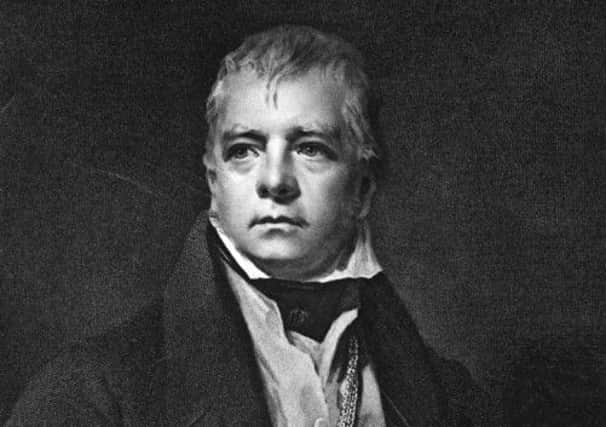‘Story of Scotland’ history project launched


Scotland’s top storyteller Andy Cannon, in a short advert placed in the personal ads section of The Scotsman today, announces that he will be touring the country over the next 12 months, meeting people and talking about what the history of Scotland means to them.
Mr Cannon, from Edinburgh, started his journey earlier this week, visiting the Flodden Monument on Monday to mark the 500th anniversary of the battle which saw some 10,000 Scottish soldiers massacred in barely two-and-a-half hours by English troops.
Advertisement
Hide AdThe advert in today’s paper reads: “To whom it may concern: at Flodden Field this week, storyteller Andy Cannon began his year-long quest to explore Scotland’s story. His story – Tales of a Grandson – will be performed in October 2014 at Macrobert arts centre and the Scottish International Storytelling Festival. To stay informed http://talesofagrandson.tumblr.com/”


Mr Cannon, whose work includes commissions with several major arts festivals, including the Scottish International Storytelling Festival, will be performing small chapters from his discoveries throughout the year, with the project culminating in a day-long “epic storytelling experience”.
He said the project had been inspired by the intersection of major anniversaries in Scottish history with the independence referendum, as well as a personal milestone.
“As a storyteller who often mines the rich seam of our country’s colourful past, I was struck that the much-anticipated 700th anniversary of Bannockburn should follow so soon after more muted reflections commemorating 500 years since the national tragedy that was Flodden,” he said.
“As chance would have it, the latter of these historic landmarks fell in the same week as my 50th birthday so it felt that there was no better place or time to begin my quest.”
He added: “I loved the idea of beginning the project by putting advert in the personal columns saying, ‘To whom it may concern, I’ve gone off on a quest’. It seemed a very romantic thing to do.”
Advertisement
Hide AdHe now plans to travel across Scotland, telling the story of its past in five separate chapters from the dawn of pre-history until the outbreak of the First World War in 1914.
There will be initial public performances of the first part of Tales of a Grandson at the Scottish International Storytelling Festival on 21 October and at Macrobert Art Centre’s Mini Festival about Family on 26 October, with chapter one – It Came Wi’ a Lass… – exploring the story of the most powerful family of Scotland, the Stuarts.
Advertisement
Hide AdDonald Smith, director of the Scottish Storytelling Centre in Edinburgh, said it was significant that the project would coincide with 200th anniversary of Scott’s career-establishing novel, Waverley: “It was Walter Scott who really defined our whole popular sense of Scotland through Tales of a Grandfather, so to turn that around now and say Tales of a Grandson, I think it’s the right kind of idea for this time, it’s just spot on.”
Sad footnote to Scott’s great works that charmed generations of young readers
SIR Walter Scott’s Tales of a Grandfather consisted of three volumes, the first of which was printed in 1827.
Scott was inspired to write a history of Scotland addressed to his six-year-old grandson, John Hugh Lockhart .
Influenced in part by the success of the Irish statesman and author John Wilson Croker’s Stories Selected from the History of England, Scott embarked on his retelling of Scottish history for children.
Scott believed that Croker had underestimated his young audience’s intelligence and that they in fact disliked books “written down” to their level, preferring a challenge to their understanding.
Advertisement
Hide AdScott’s first volume covered the period between the reign of Macbeth, 1033-56, and the Union of the Crowns in 1603, sold so well that before the end of the month, his publisher commissioned a revised and enlarged second edition. The second volume of the series ended with the Union of England and Scotland in 1707, while the third extended the narrative to the end of the 18th century, culminating in the aftermath of Culloden in 1746.
Scott was persuaded to undertake a fourth volume, In July 1830, he agreed to write a fourth volume dealing with French history from Charlemagne to Louis XIV. The fourth was as well-received as the earlier Tales, and a second French series was pledged for Christmas 1831. However, with his energies focused on two other novels, work on it was suspended. Following the death of his grandson that year, aged 10, Scott did not to return to the manuscript.
Advertisement
Hide AdThe series’ commercial success was matched by critical acclaim, with reviewers applauding them as an important contribution to the campaign to encourage improving writing for children. Scott was also widely praised for his efforts to be even-handed towards different political factions.